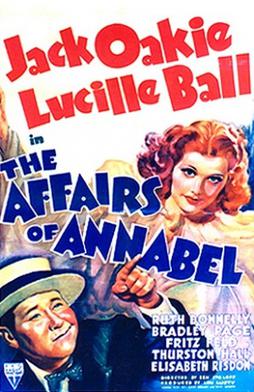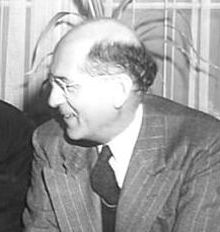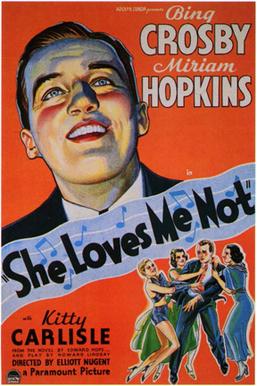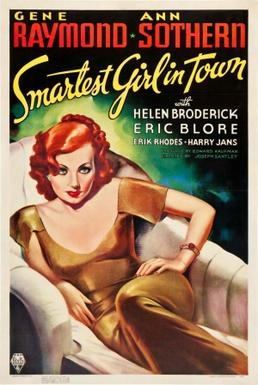Related Research Articles

This is a list of notable events in music that took place in the year 1933.

Flook is an Anglo-Irish band playing traditional-style instrumental music, much of it penned by the band themselves. Their music is typified by extremely fast, sometimes percussive, flute and whistle atop complex guitar and bodhrán rhythms. Flook is made up of Brian Finnegan, Sarah Allen, Ed Boyd and John Joe Kelly.

Joe Penner was an American vaudeville, radio, and film comedian.

Stuart Erwin was an American actor of stage, film, and television.

The Affairs of Annabel is a 1938 American comedy film directed by Benjamin Stoloff and starring Lucille Ball, Jack Oakie and Ruth Donnelly. It was produced and distributed by RKO Pictures. The film was followed by the sequel Annabel Takes a Tour the same year, also starring Oakie, Ball and Donnelly.

Jack Oakie was an American actor, starring mostly in films, but also working on stage, radio and television. He portrayed Napaloni in Chaplin's The Great Dictator (1940), receiving a nomination for the Academy Award for Best Supporting Actor.

The Big Broadcast of 1938 is a Paramount Pictures musical comedy film starring W. C. Fields and featuring Bob Hope. Directed by Mitchell Leisen, the film is the last in a series of Big Broadcast movies that were variety show anthologies. This film featured the debut of Hope's signature song, "Thanks for the Memory" by Ralph Rainger.

Helen Mack was an American actress. She started her career as a child actress in silent films, moving to Broadway plays and touring one of the vaudeville circuits. Her greater success as an actress was as a leading lady in the 1930s. She made the transition to performing on radio and then into writing, directing, and producing shows during the Golden Age of Radio. She later wrote for Broadway, stage and television. Her career spanned the infancy of the motion picture industry, the beginnings of Broadway, the final days of vaudeville, the transition to sound movies, the Golden Age of Radio, and the rise of television.

The Big Broadcast of 1936 is a 1935 American comedy film directed by Norman Taurog, and is the second in the series of Big Broadcast movies. The musical comedy starred Jack Oakie, Bing Crosby, George Burns, Gracie Allen, Ethel Merman, The Nicholas Brothers, Lyda Roberti, Wendy Barrie, Mary Boland, Charlie Ruggles, Akim Tamiroff, Amos 'n' Andy, Bill "Bojangles" Robinson, and Argentinian tango singer Carlos Gardel.

Lancelot Patrick Ross was an American singer, pianist, songwriter, and sprinter.

The Milky Way is a 1936 American comedy film starring Harold Lloyd. Directed by comedy veteran Leo McCarey, the film was written by Grover Jones, Frank Butler and Richard Connell based on a play of the same name by Lynn Root and Harry Clork that was presented on Broadway in 1934.

Elliott Nugent was an American actor, playwright, writer, and film director.

College Humor is a 1933 American pre-Code musical comedy film, directed by Wesley Ruggles, and starring Bing Crosby, Jack Oakie, Richard Arlen, Mary Kornman and Mary Carlisle. Based on a story by Dean Fales, the film is about a college professor and the school's star football player who become rivals for the same beautiful student. Released by Paramount Pictures, the film co-stars George Burns and Gracie Allen.

Albert E. Lewis was a Polish-born Broadway and film producer. His family emigrated to the Lower East Side of Manhattan, New York when he was a boy. He became a vaudeville comedian, then started a partnership producing one-act plays for vaudeville. Around 1930 he moved to Hollywood and worked as a film producer with Paramount, RKO, and MGM until after World War II.

New Faces of 1937 is a 1937 American musical film directed by Leigh Jason and starring Joe Penner, Milton Berle and Harriet Hilliard. Its plot is similar to The Producers (1968). Intended as the first film of an annual RKO Pictures revue series, poor reception ended plans for future productions.

She Loves Me Not is a 1934 American comedy film directed by Elliott Nugent and starring Bing Crosby and Miriam Hopkins. Based on the novel She Loves Me Not by Edward Hope and the subsequent play by Howard Lindsay, the film is about a cabaret dancer who witnesses a murder and is forced to hide from gangsters by disguising herself as a male Princeton student. Distributed by Paramount Pictures, the film has been remade twice as True to the Army (1942) and as How to Be Very, Very Popular in (1955), the latter starring Betty Grable.
This is a list of notable events in music that took place in the year 1934.

Smartest Girl in Town is a 1936 American comedy film directed by Joseph Santley, written by Viola Brothers Shore, and starring Gene Raymond, Ann Sothern, Helen Broderick, Eric Blore, Erik Rhodes and Harry Jans. It was released on November 27, 1936, by RKO Pictures.

$1,000 a Touchdown is a 1939 American comedy film directed by James P. Hogan, written by Delmer Daves, and starring Joe E. Brown, Martha Raye, Eric Blore, Susan Hayward, John Hartley and Joyce Mathews. It was released on October 4, 1939, by Paramount Pictures.
Collegiate is a 1936 American musical film directed by Ralph Murphy and written by Walter DeLeon, Francis Martin and Alice Duer Miller. The film stars Joe Penner, Jack Oakie, Ned Sparks, Frances Langford, Betty Grable and Lynne Overman. The film was released on January 22, 1936, by Paramount Pictures.
References
- ↑ Shaffer, George (1934-03-29). "Will Rogers and Fred Stone in 'Maybe We'll Co-star'". Daily News . New York. p. 60.
- ↑ Crow, James Francis (1934-06-11). "Warners Plan Special on Famed Flying Unit". Los Angeles Evening Citizen News . p. 4.
- ↑ Penner, Joe (1934-06-26). "Duck Man Writes a Column". The Washington Times . p. 4.
- ↑ Skolsky, Sidney (1934-07-20). "Hollywood". Daily News . New York. p. 38.
- ↑ Pendergrast, Mark (1999). Uncommon grounds: the history of coffee and how it transformed our world. Basic Books. ISBN 0-465-05467-6.
By the beginning of 1933 "Maxwell House Show Boat" was the top radio show in the country, a status it would maintain for the next two years. ...
- ↑ "Combines Radio and Pictures". The Montclair Times . 1934-07-20. p. 14.
- ↑ "Production Schedules". Los Angeles Evening Citizen News . 1934-08-21. p. 7.
- ↑ "Production Schedules". Los Angeles Evening Citizen News . 1934-10-09. p. 5.
- ↑ "Lanny Ross Delays Trip". The Kansas City Star . 1934-05-27. p. 14C.
- ↑ Parsons, Louella (1934-08-21). "'Lookers' Who Can Act Found Scarce". The Minneapolis Tribune (Morning ed.). p. 9.
- ↑ "Composers Finish Songs for Musical". Washington Times-Herald . 1934-08-21. p. 10.
- ↑ Pantages, Lloyd (1934-08-22). "I Cover Hollywood". San Francisco Examiner . p. 11.
- ↑ Pantages, Lloyd (1934-08-21). "I Cover Hollywood". Oakland Post-Enquirer. p. 14.
- ↑ Arthur, Art (1934-03-02). "Reverting to Type". The Brooklyn Daily Eagle . p. 25.
- ↑ Nugent, Frank S. (1934-11-24). "The Screen: Mr. Penner Sells His Duck". The New York Times . p. 19.